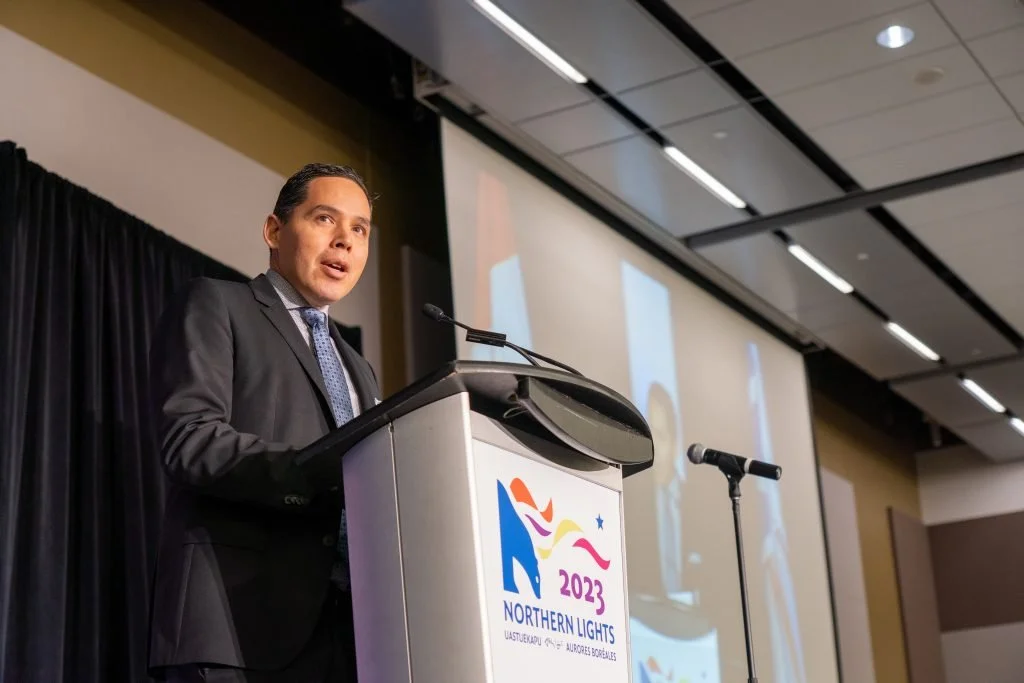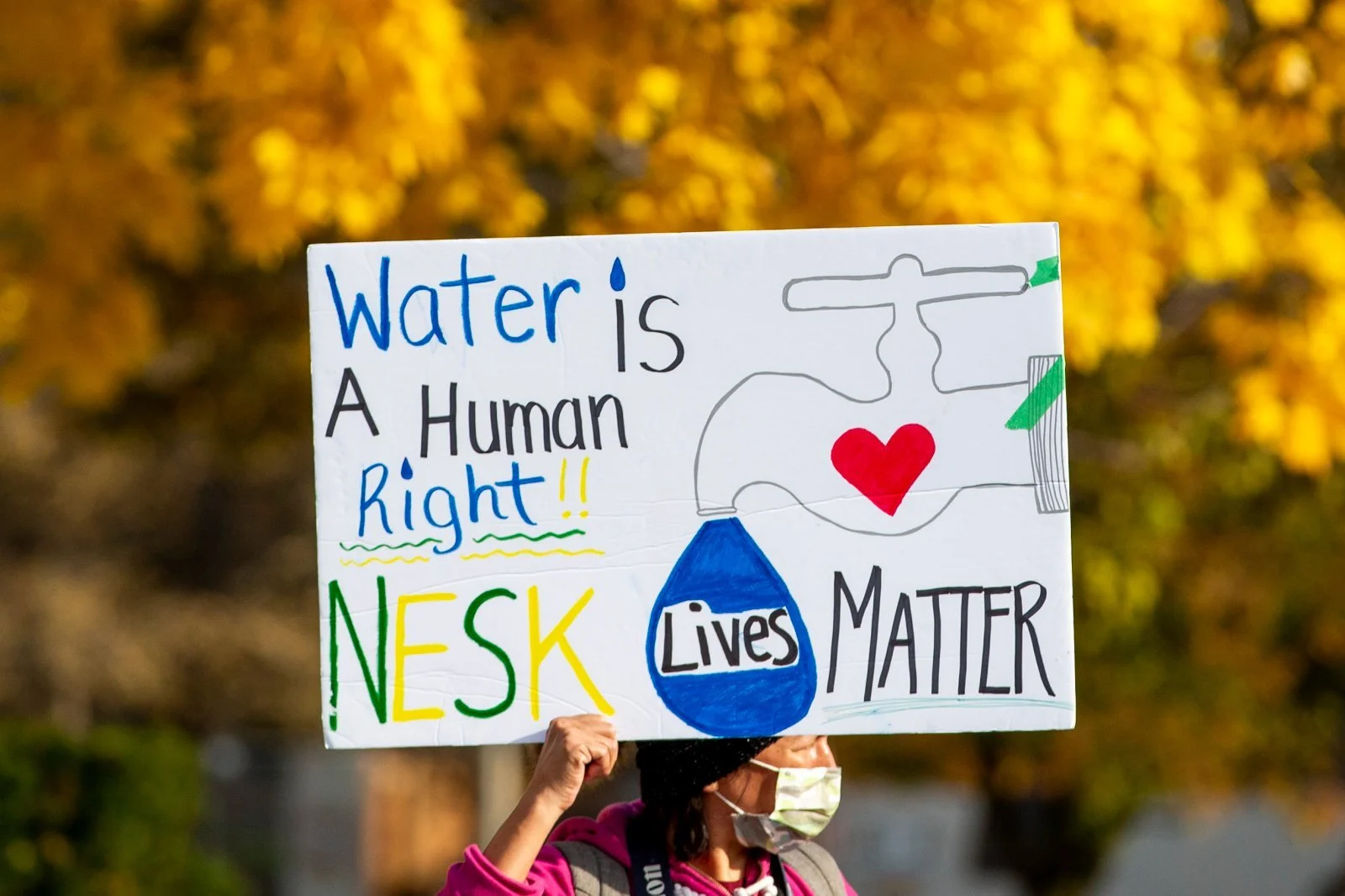He admitted it can be difficult, pointing to the ongoing challenge of pressuring the federal government to provide drinkable water to Canada’s remote Indigenous communities. Obed said there were 298 boil water advisories between 2015 and 2020, including four that went on for more than a year and 50 that lasted more than three months. “This is part of our job,” he said of keeping Canadian government leaders accountable to fix these problems. “Our job is to articulate and quantify what it means to eliminate an infrastructure gap. These require billions of dollars, new relationships, and on ongoing effort where you tweak it over time.”
NDP Statement on National Day for Truth and Reconciliation
Despite tireless advocacy, the federal government is still denying Indigenous communities much of the funding they have requested for discovering the remains at former residential schools and healing programs. Across the country, there are still 32 long-term boil water advisories in effect in 28 communities, and at least 45 short-term drinking waters advisories in Indigenous communities. More troubling, as Indigenous women and girls face an ongoing genocide, the government has failed to build new shelters to help Indigenous women and gender-diverse people and children flee violence.
For Ontario's most northern riding, there's a feeling of neglect that residents are looking to change
In one of Ontario's newest electoral ridings, residents hope whichever party forms the next provincial government will fix a longstanding sense of neglect and address a wide range of issues disproportionately felt in the far north. Kiiwetinoong — which means north in Ojibway — is the largest riding in Ontario by geographic area, but one of the smallest in terms of population. It was one of two new ridings created for the 2018 election, and the majority of the population is Indigenous.
Hajdu hopeful all long-term boil water advisories lifted in Canada by 2025
Indigenous Services Minister Patty Hajdu hopes Canada will be able to lift its remaining long-term drinking water advisories by 2025 – the year a deal between the NDP and the Liberal government is set to expire. Hajdu has declined to put a firm deadline on the commitment since coming into the role last fall, saying there are many technical challenges with the task.
Federal government vows again to end boil water advisories but offers no new target date
Indigenous Services Minister Marc Miller today recommitted the federal government to its goal of lifting all long-term drinking water advisories on First Nations reserves — but didn't offer a timeline for completing the work. With 58 active advisories remaining in 38 communities, the Liberals will miss a self-imposed deadline this month for lifting all long-term advisories. Miller said today that ensuring access to clean tap water for all First Nations communities remains a top government priority.
How colonial systems have left some First Nations without drinking water
Rebecca Zagozewski, executive director of the Saskatchewan First Nations Water Association, said she has seen contractors save on costs when building water treatment plants on reserves by using obsolete parts and failing to include maintenance manuals, ventilation or chemical rooms, and bathrooms. “Engineering companies will put in their bids obviously as low as they can go,” said Zagozewski.
Liberal government will miss drinking water target by years, CBC News survey shows
The Liberal government will miss a target it set during the 2015 federal election campaign to lift all long-term drinking water advisories in First Nations by March 2021 — in some cases by several years — according to a survey of communities by CBC News. More than a dozen First Nations said projects to end long-term drinking water advisories won't be completed by the promised deadline.
Indigenous activist Autumn Peltier vows to hold feds accountable for 61 boil water advisories
With tears in her eyes, Peltier has also pressed Prime Minister Justin Trudeau directly about the ongoing threat that oil pipelines pose to the environment, specifically clean drinking water. “I’m kind of still holding him accountable because I’m not going to forget that,” she said. “When you think about Canada, you don’t imagine having a crisis or issue this big because we’re looked at as a rich country." The Trudeau government promised to end all long-term water boil advisories on First Nations reserves by March 2021. As of last March, 88 were lifted, but 61 still remain. Even through the pandemic, Peltier’s activism hasn’t stopped. Along with completing her school work, she’s also been empowering other youth through online events and speaking engagements.
Two long-term water advisories lifted in Ontario First Nations as feds approach 2021 deadline
Two First Nations in northwestern Ontario are finally able to drink from their taps as they celebrated lifting long-term boil water advisories this week. Community members in Grassy Narrows First Nation, also known as Asubpeeschoseewagong, received a letter from Chief Rudy Turtle on September 29 which read: "As of TODAY the boil water advisory is NOW lifted. This means you can safely consume the tap water." One day later, the Wauzhushk Onigum Nation celebrated the end of their long-term boil water advisory at the completion of the $14-million project to connect the community to the city of Kenora's water and sewer system.
Indigenous-driven water governance approaches crucial: experts
As work continues on combating water issues facing First Nations in Canada, researchers and organizations are increasingly looking at the role of Indigenous self-determination in terms of policy, research and governance. In November, the Assembly of First Nations (AFN) held its third annual water symposium, with the theme of First Nations Water Post-2021.
'Inertia and incompetence': Manitoba First Nation launches proposed class action over water advisories
A legal challenge filed in Manitoba's Court of Queen's Bench could cost the federal government billions, if it is proven the government has violated the Charter rights of a large class of First Nations people for decades by failing to provide them with safe drinking water. A proposed class-action lawsuit was filed on Nov. 20 by Tataskweyak Cree Nation Chief Doreen Spence on her own behalf and on behalf of her northern Manitoba First Nation. The suit alleges the First Nation has spent decades without access to clean drinking water and seeks damages.
'Truly exciting': Saskatchewan town can drink tap water again after 9 years
Residents of a small Saskatchewan town can drink the water coming out of their taps for the first time in nearly nine years thanks to a new water treatment plant. Craik, population 400, has been facing a boil water advisory since August 2010, when the province found its old plant didn’t meet minimum disinfection standards. “Sometimes it was yellow and sometimes it was brown and sometimes there was dirt in it,” one resident recalled.
Semiahmoo First Nation takes first step toward new water system
The construction of a modest road into a small community wouldn't usually get a full ground-breaking photo op, complete with gold-coloured shovels and government officials. But for the Semiahmoo First Nation, the road work is just the first step toward new water infrastructure that will end the community's 15-year permanent boil water advisory. "I'm waiting for a day to be able to turn on a tap and drink a glass of water," said Harley Chappell, Semiahmoo's elected chief. "That's the goal."
Our national shame: The racism inherent in our First Nations water crisis
There is also concern the changes that were made that allowed some of the advisories to be lifted were just temporary fixes. There are long-term, structural problems with the water treatment systems in many Indigenous communities that have not been addressed. Many of these places lack the proper equipment needed to remedy the operational issues with which they are confronted.
Liberals cut reserves' boil advisories, but water-system problems linger
Kehewin Cree Nation Celebrates Sod-Turning for a New Water Treatment System
Today, Randy Boissonnault, Member of Parliament for Edmonton Centre, on behalf of the Honourable Jane Philpott, Minister of Indigenous Services, visited Kehewin Cree Nation and congratulated Chief Brenda Vanguardand the entire community on the official sod turning for their new water treatment system. This new water treatment system is critical to the community's efforts to lift their long-term drinking water advisory.
How the private sector can boost First Nations infrastructure
Tellingly, Ms. Philpott publicly declared last fall that her department’s mandate is to make itself “obsolete” by empowering Indigenous groups to gain long-asked-for independence in providing services to their own communities. It’s clear that the goal is to assist First Nations to expand their role in operating and maintaining their own water systems.


















